M4 relief road: Common cranes nesting on proposed site
- Published
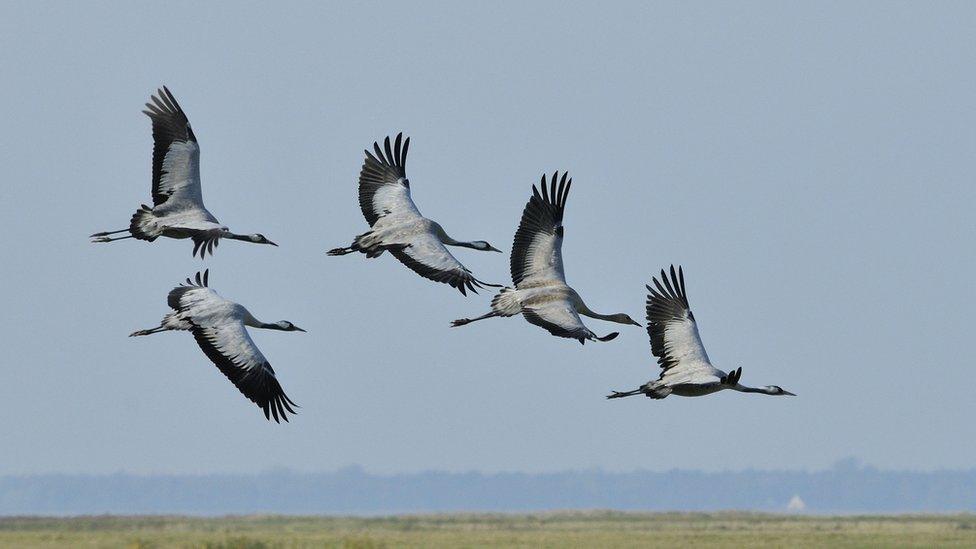
Cranes resemble herons but they rarely stand still and often fly in groups, trailing their long legs behind
The proposed £1bn M4 relief road around Newport would cut through the first nesting site for common cranes in Wales in over 400 years, it has emerged.
The RSPB said the revelation, in a Welsh Government ecology report, was emblematic of wider environmental concerns about the scheme.
A five-month public inquiry, external into the plans begins on Tuesday.
Ministers have insisted that the project is vital, with congestion on the M4 holding back the economy.
But their preferred "black route" cuts across the ancient marshlands of the Gwent Levels, a haven for wildlife.
As well as rare plants, invertebrates and aquatic mammals like voles and otters, the latest species to be spotted is the common crane.
Last spring, a pair flew from Somerset to nest on the levels, hatching the first Welsh-born chick in over 400 years.
The adults originated from the Great Crane Project, external, which has been reintroducing the birds to the West Country since 2010.
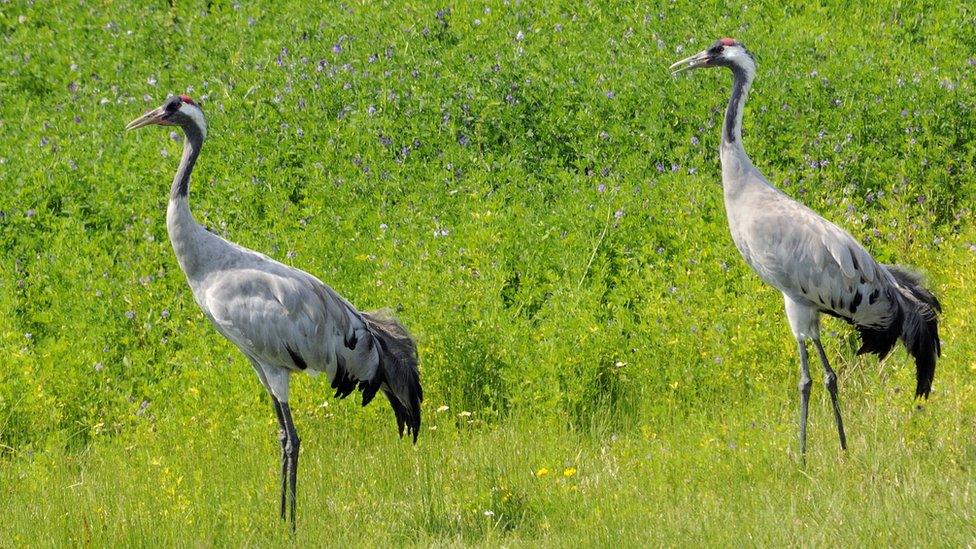
Common cranes are one of 15 species
Damon Bridge said the birds need peace and quiet
Damon Bridge, from the RSPB, who manages the project, said he had "major concerns" about the M4 scheme and the impact on the rare birds, which require a "very quiet, undisturbed" environment.
"It would be a significant loss to lose the very start of this comeback for a wonderful species on a site as wonderful as the Gwent Levels," he said.
"These birds died out across the UK sometime in the 1600s. Seeing them spread back into their former haunts highlights the importance of protecting our wetlands."
A host of environmental groups are set to give evidence to the public inquiry, which will examine the plans as well as suggestions of alternative routes and issue a recommendation to the Welsh Government.
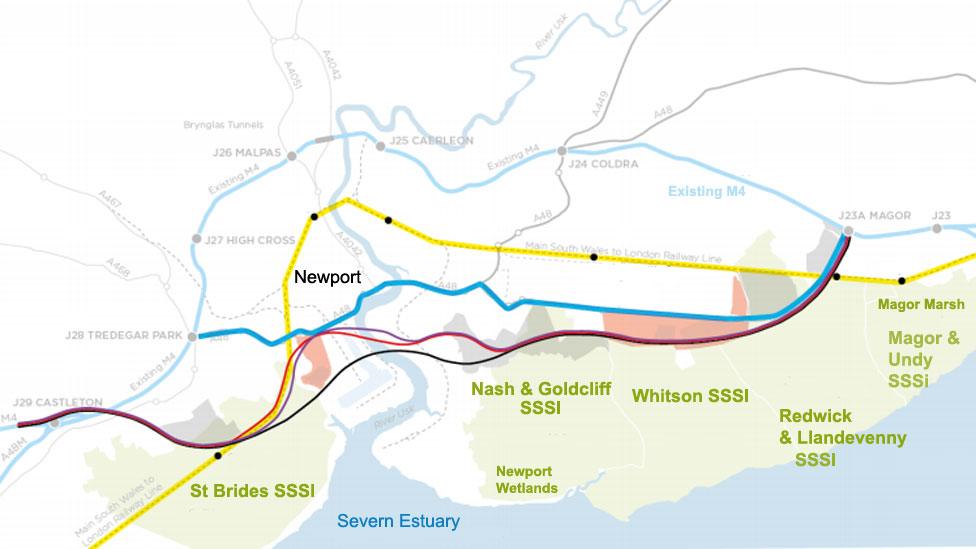
The proposed black route, other options and the nature sites
Gemma Bode, director of conservation for Gwent Wildlife Trust, said she was "really devastated that it had come to this point".
The Welsh Government is attempting to compulsory purchase part of the charity's nature reserve at Magor Marsh to build the road.
She said: "We know how important the landscape is - the designations are there. The route would cut through several sites of special scientific interest and it's also a landscape of outstanding historic interest, absolutely unique in Wales and across the UK.
"It really is a David and Goliath battle - we're a small, local environmental charity and we're fighting this proposal by the government."
'Ill conceived'
Mitigation land for wildlife is being promised as part of the road's development, with the Welsh Government arguing that tackling congestion will also help combat air pollution and carbon emissions from standing traffic.
But Ms Bode said the loss of habitat envisaged by this scheme could not be mitigated for.
In evidence submitted to the inquiry, Wales' Future Generations Commissioner Sophie Howe said she believes the plan was "ill-conceived".
A Welsh Government spokesman said: "The public inquiry will allow the project, and its environmental mitigation measures, to be openly and robustly scrutinised by independent inspectors to determine whether it is the sustainable, long-term solution to the serious problems associated with this gateway to Wales.
"The outcome of the inquiry will inform a final decision on whether to proceed with construction."
- Published22 February 2017

- Published27 January 2017
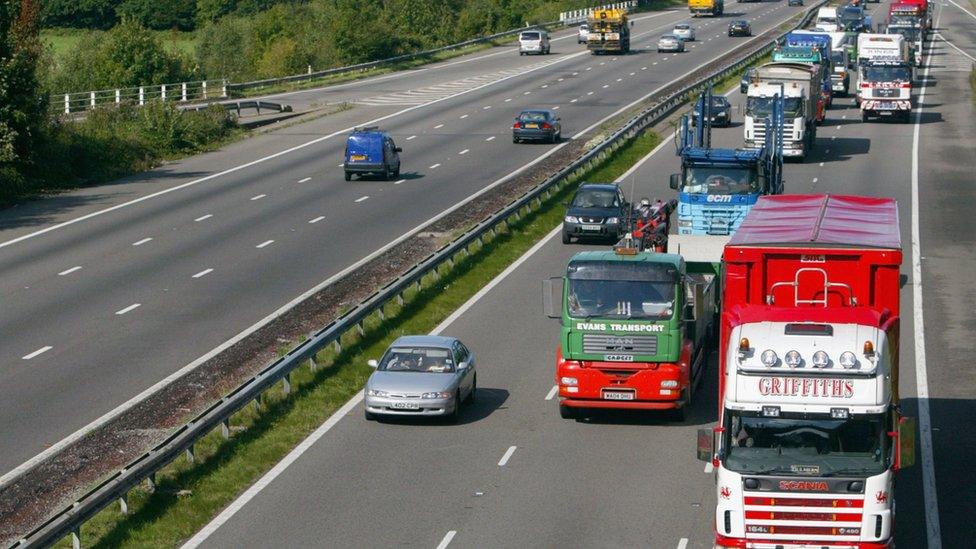
- Published13 May 2016
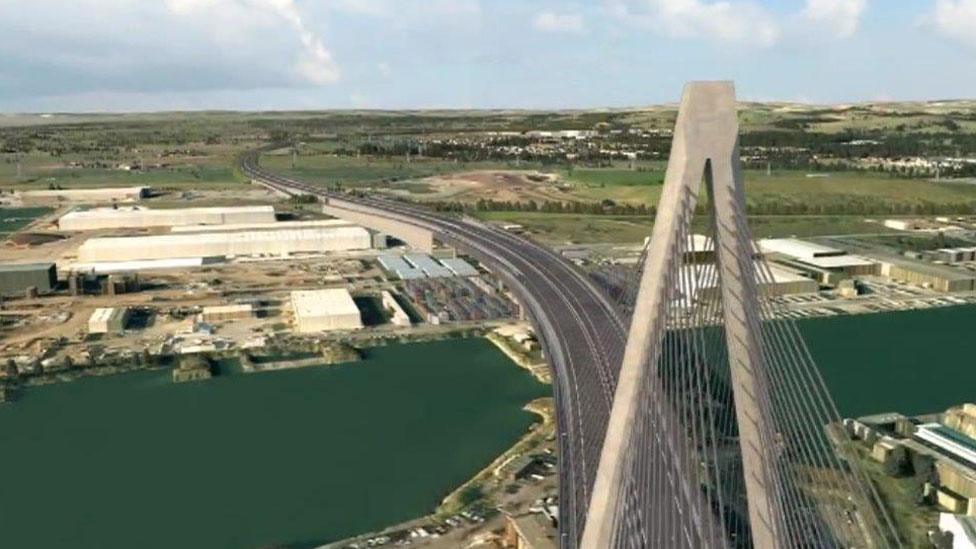
- Published13 June 2016
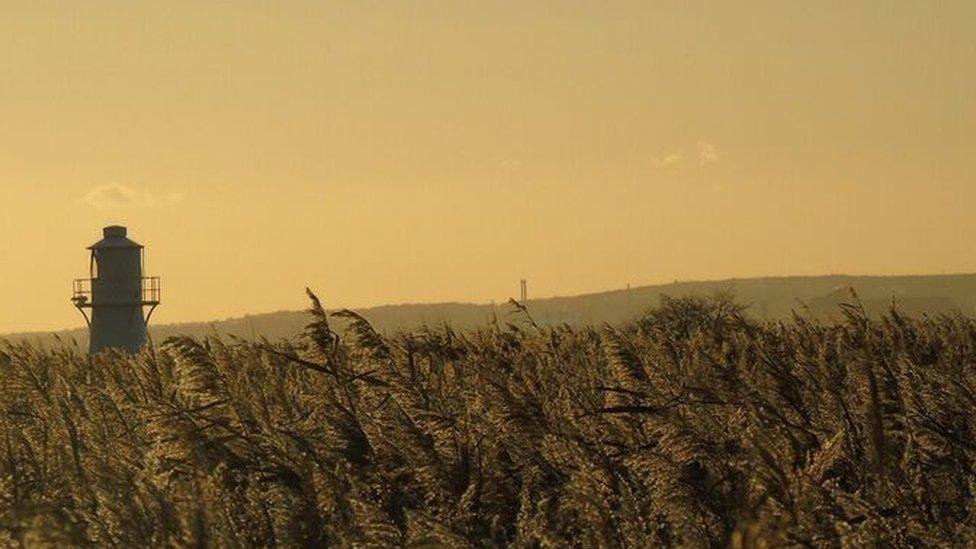
- Published4 June 2019
